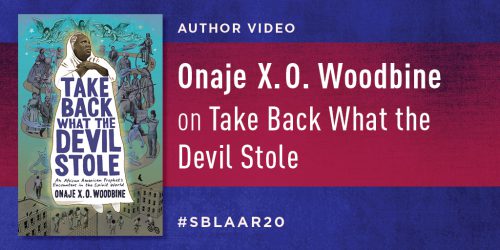How the French Have Viewed American Religion
The following is an excerpt from Denis Lacorne’s Introduction to Religion in America: A Political History.
“Twentieth-century French perceptions of America, however contradictory, share a common pessimistic message. The United States is not really a democracy. It is either a godless nation dominated by the profit motive, or the very opposite: an intolerant Anglo-Protestant theocracy.”—Denis Lacorne
There is general agreement that the United States is the most religious of advanced Western democracies. The level of religious observance in the country is unusually high and political language is imbued with religious values and religious references. “In God We Trust” is the national motto of the United States and enshrined on its currency, “one nation under God” was added to the Pledge of Allegiance in 1954, and an impressive number of elected officials—members of Congress, cabinet officers, and presidents such as Jimmy Carter and George W. Bush—have claimed a special relationship with the Almighty following a momentous adult conversion experience. And yet this reality is the source of major misunderstandings, clichés, and misperceptions between the United States and other Western nations regarding the proper role of religion in a modern democracy.
Nowhere is this more evident than in France where contemporary writers—journalists, political scientists, philosophers, novelists—are particularly disturbed by what they see on the American political scene: the proliferation of religious slogans and allegories; the frequency of worship services, prayer meetings and thanksgiving celebrations organized by public authorities; the inordinate use of a Manichean rhetoric opposing the forces of Good to the forces of Evil. Such manifestations of an overwhelming public religiosity reinforce the French belief that the United States is an aggressively and unapologetically Christian nation. Its political creed, it is argued, has remained fundamentally Anglo-Protestant, despite an increasing influx of Asian and Latino immigrants whose cultural values are by definition outside the ambit of Anglo-Protestantism.
Based on these assumptions, numerous French observers have concluded that there is no escape from religion in American politics and that, despite its well-established republican framework, American democracy is less advanced because it has not yet completed its process of secularization. The French, they argue, are more authentically “republican” than the Americans, because they have enshrined a secular ideal in the first article of their constitution and have established a long-lasting separation between church and state.
Against the background of these widely accepted continental clichés, I have attempted to do two things in this book. The first is to trace the broad outlines of the role of religion in the formation of a distinct American national identity. The second is to examine, against this background, how key French thinkers, from Voltaire and Tocqueville to Sartre and Bernard-Henri Lévy, have tried to explain the place and significance of religion in American politics….
The second emphasis of this book is on how French observers have perceived the complex interaction of religion with politics in America. French views of religion in America are surprisingly diverse and idiosyncratic. At the time of the American Revolution, there was a productive exchange of ideas between French intellectuals and American political elites. The consensus, following Voltaire’s influence and that of other Enlightenment philosophers, was that religion was not central to the building of a modern American nation; what mattered most was a “government without priests” and a genuine separation between church and state. In the 1830s, this view was generally displaced by a new perspective defended, among others, by Tocqueville: the “spirit of religion” was the root cause of American democracy and the Puritan tradition was acknowledged as structuring the political life, the social mores, and the religious beliefs of the country. There were some dissenting voices expressed by followers of Saint-Simon who questioned the relevance of Puritanism and praised the rising influence of more “democratic” religions derived from the Second Great Awakening. But the perspective adopted by Tocqueville remained dominant in the mid-nineteenth century and was widely shared by other European thinkers and American historians.
It was only a century later, starting in the 1930s, that French perceptions of religion in America significantly diverged from these earlier secularist and Neopuritan currents. Perhaps the most significant example is the influential French Catholic writers who, concerned about the excesses of modern capitalism, came to the conclusion that the “death of God” was the central value of the American polity and that it was Europe’s duty to prevent the spread of such a dangerous materialistic ideology to the rest of the world. This radically new perspective placed on an equal footing “Godless America” and “Godless (Soviet) Communism.” It marked the beginning of a fundamental divergence between French and American views of religion in America—a divergence which persists to this day, although, paradoxically, with diametrically opposed results. The consensus shared by a majority of French writers and journalists today, which dates to the end of the Second World War, represents a clear break from the 1930s: God is once again back in America and the American identity is fixed once and for all in its Puritan past, as if nothing had changed over the past four centuries.
Twentieth-century French perceptions of America, however contradictory, share a common pessimistic message. The United States is not really a democracy. It is either a godless nation dominated by the profit motive, or the very opposite: an intolerant Anglo-Protestant theocracy.



